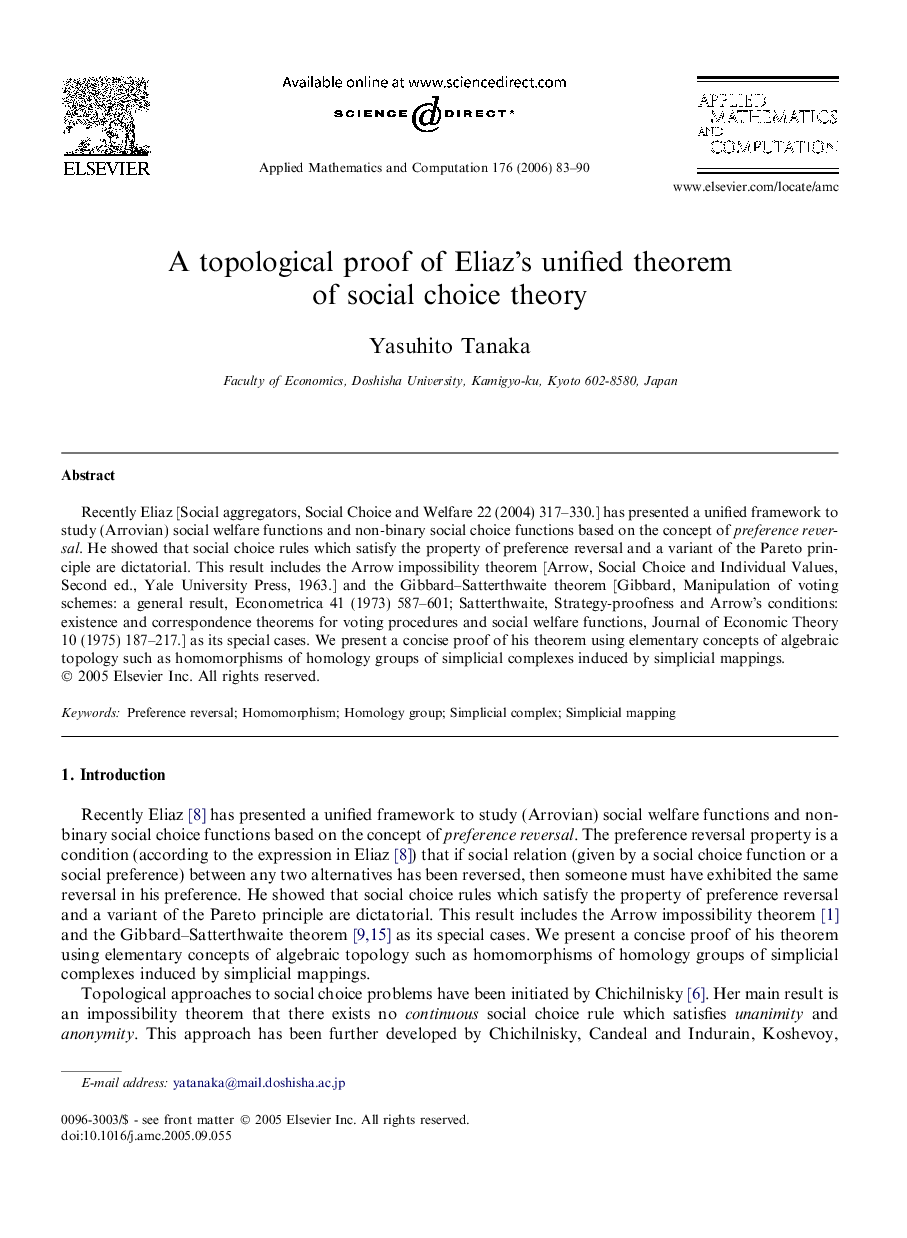| Article ID | Journal | Published Year | Pages | File Type |
|---|---|---|---|---|
| 4636900 | Applied Mathematics and Computation | 2006 | 8 Pages |
Abstract
Recently Eliaz [Social aggregators, Social Choice and Welfare 22 (2004) 317-330] has presented a unified framework to study (Arrovian) social welfare functions and non-binary social choice functions based on the concept of preference reversal. He showed that social choice rules which satisfy the property of preference reversal and a variant of the Pareto principle are dictatorial. This result includes the Arrow impossibility theorem [Arrow, Social Choice and Individual Values, Second ed., Yale University Press, 1963] and the Gibbard-Satterthwaite theorem [Gibbard, Manipulation of voting schemes: a general result, Econometrica 41 (1973) 587-601; Satterthwaite, Strategy-proofness and Arrow's conditions: existence and correspondence theorems for voting procedures and social welfare functions, Journal of Economic Theory 10 (1975) 187-217] as its special cases. We present a concise proof of his theorem using elementary concepts of algebraic topology such as homomorphisms of homology groups of simplicial complexes induced by simplicial mappings.
Related Topics
Physical Sciences and Engineering
Mathematics
Applied Mathematics
Authors
Yasuhito Tanaka,
